Choosing the right floors can make or break the deal when renovating your home. Hardwood has been preferred for decades, but vinyl planks have gained a lot of popularity in the past years. Cheaper and packing important advantages compared to wood; vinyl floors appeal to many homeowners.
But what are the vinyl plank flooring pros and cons? Is it worth the investment, or should you stick to carpet, tiles, or hardwood? Let’s find it out.
Table of Contents
What Is Vinyl Plank Flooring?
Often mistaken for linoleum, vinyl plank flooring is vinyl flooring that comes in long, narrow strips rather than sheets or square tiles. Structurally, vinyl plank flooring is different than vinyl sheets or tiles, which are thin and very flexible one-layer products.
Standard vinyl planks are multi-ply products generally consisting of four layers:
- A backing layer made of rigid vinyl – gives the plank the same rigidity as laminate
- A design layer that usually mimics real wood or stone. Other designs are also available
- On top of the design layer, a clear film protects the plank against severe ripping and tearing
- Lastly, an aluminum oxide layer protects against scuffs and light scratching
Most vinyl planks are 36 or 48 inches long and about 6 inches wide, although some go to as much as 7-3/4 inches wide.
Standard vinyl planks aside, you can also choose from other options, including luxury vinyl plank flooring (LVP), stone-plastic composite vinyl (SPC), and wood-plastic composite vinyl (WPC).
LVP vs. SPC vs. WPC
LVP, or luxury vinyl planks, are design vinyl planks featuring a hyper-realistic wood or stone design. This flooring type comes in multiple colors and designs; it is very easy to install, more resistant than standard vinyl flooring, and easy to maintain.
Unlike standard vinyl flooring that usually only mimics hardwood floors, LVP planks can also feature an antiqued or heavily distressed look or with hand-scraped or scratched details.
Like standard vinyl flooring, LVP is water-resistant but not fully waterproof. Nevertheless, it is a good choice for most spaces.
Stone-plastic composite and wood-plastic composite are two types of so-called rigid core vinyl planks. The main difference between them and LVP is the composition of the inner core in the SPC and WPC models. As the name suggests, SPC has a core made of a stone and polymer composite, whereas WPC features a wood-polymer composite core.
Both core types are much more resistant than standard and luxury vinyl planks. Not only will they last longer, but they are also fully waterproof. Moreover, their finish is the closest you can get to the real hardwood effect.
Thanks to their waterproofness, SPC and WPC flooring is an ideal choice for wet areas in residential and commercial spaces. You can use it in the bathroom, kitchen, or even on the porch without worrying too much about moisture levels.
Another big advantage of SPC and WPC compared to LVP is that both types are float-installed, meaning that they are not permanently fixed to the substrate. Changing the floors, thus, is as easy as pie, and installing is also more straightforward.
The only downside compared to LVP is the higher price tag. However, this flooring is still more cost-effective than hardwood.
Vinyl Plank Flooring Pros
1. Vinyl Plank Floors Are Affordable
Perhaps the greatest advantage of vinyl plank flooring compared to tiles and hardwood is the low upfront cost. On the low end of the spectrum, you can spend under $1 per square foot. On average, vinyl plank flooring costs between $2.50 and $4 per square foot.
Rigid core vinyl planks are more expensive, but they will rarely cost you more than $6 per square foot.
Comparatively, hardwood flooring costs about $10 per square foot on average, tiles between $10 and $15 per square foot, whereas you can expect to pay around $12 per square foot for quality carpet. Considering the durability and low maintenance of vinyl plank flooring, the investment is more than worth it.
2. Variety of Unique Finishes
Vinyl floors come in a variety of classic or unique patterns, including stone and marble effects in addition to imitations of hardwood.
Moreover, designer vinyl floors can also mimic ceramic tiles, or you can choose from abstract patterns and designs suitable for modern and contemporary interiors.
3. Highly Durable When Cared for Properly
Vinyl plank flooring has a long lifespan – definitely longer than carpet and sometimes longer than hardwood, depending on the floor’s quality and maintenance.
Perhaps you’ve heard already that vinyl plank flooring is low maintenance. However, you should learn how to care for it properly to maintain it in good shape for as long as possible. When it comes to this flooring type, less is definitely more.
You don’t need any fancy cleaning products; in fact, most detergents and waxes can damage this material. Simply clean your floors with a homemade solution made of a cup of white vinegar and a gallon of hot water. Alternatively, use a cleaner specific for vinyl floors to mop the surface as needed.
4. Easy to Install and Maintain
More often than not, vinyl plank flooring is float floor type, meaning that it “floats” over the substrate. The planks interlock with one another, so you only have to snap them in place. However, you won’t have to use any glue or fasteners.
Standard vinyl plank flooring may require gluing to the substrate. However, it is still easier to install than hardwood and tiles.
5. Comfortable to Walk On
While vinyl flooring isn’t as comfortable to walk on as carpet, it is still softer and more comfortable than hardwood or tiles. This is an important benefit, especially if you want to install new floors in a commercial space where employees have to stand for long periods of time.
Another positive aspect as far as comfort is concerned is the material’s ability to stay at room temperature. This feature is especially important if you like to walk barefoot in your home even during the colder months – just turn the central heating on, and your vinyl floor will feel fairly warm to touch.
6. Perfect for Households with Kids and Pets
As we mentioned above, not all vinyl plank flooring is fully waterproof; however, all types are water-resistant and perfect for households with kids and pets. You won’t have to worry about spills and accidental messes, and cleaning the floor is as easy as pie with a wet/dry vacuum or a mop.
Vinyl Plank Flooring Cons
1. It Can Sometimes Be Difficult to Remove
Floating vinyl flooring is very straightforward to remove; however, standard vinyl flooring which is glued to the substrate may require more effort. Luckily, you won’t need any special tools or knowledge to remove the planks, only some elbow grease.
2. Quality Can Be Inconsistent
One of the greatest disadvantages of this flooring type is that quality can be inconsistent. Some types of thinner vinyl planks are prone to indentation and can be damaged easily, especially if you have heavy furniture.
Moreover, some planks can also absorb moisture faster than others, depending on the type of core layer. These planks could swell or lose their shape.
For this reason, you should only invest in flooring with a thickness of at least 6mm (the thicker, the better) and preferably with a rigid core if you want to install it in the kitchen, bathroom, or other heavily trafficked areas such as an entryway or hallway.
3. Limited UV Resistance
Another downside is the limited resistance to UV radiation, which could lead to discoloration. For this reason, you should make sure the planks are coated with a UV-resistant layer if you want to install them in a sunny room.
4. Lower Resale Value than Real Wood
Vinyl plank flooring is versatile and all, but it will never be real wood. Despite vinyl’s popularity, hardwood is still the most popular and desirable flooring type. If you’re looking to change the floors to increase your home’s resale value, investing in vinyl might not be worth it.
In fact, according to the National Association of Realtors, up to 54% of home buyers are willing to pay more for a house with hardwood floors.
If you don’t want to spend a fortune on new floors, we recommend choosing a premium type of luxury vinyl planks and making sure that you keep the flooring style consistent throughout the entire house.
Conclusion
Vinyl plank flooring is an excellent choice for modern homes or renovations on a budget. Depending on the type, this kind of floor can provide a real wood effect at a fraction of the price. Costs aside, vinyl flooring is also easy to install and maintain.
It may not have hardwood’s resale value nor the durability of a tile floor, but you can still expect it to last for decades.
So, what do you say? Now that you know the pros and cons, are you still considering vinyl plank flooring for your home? Tell us in a comment below. And before you go, please share this article with your friends.
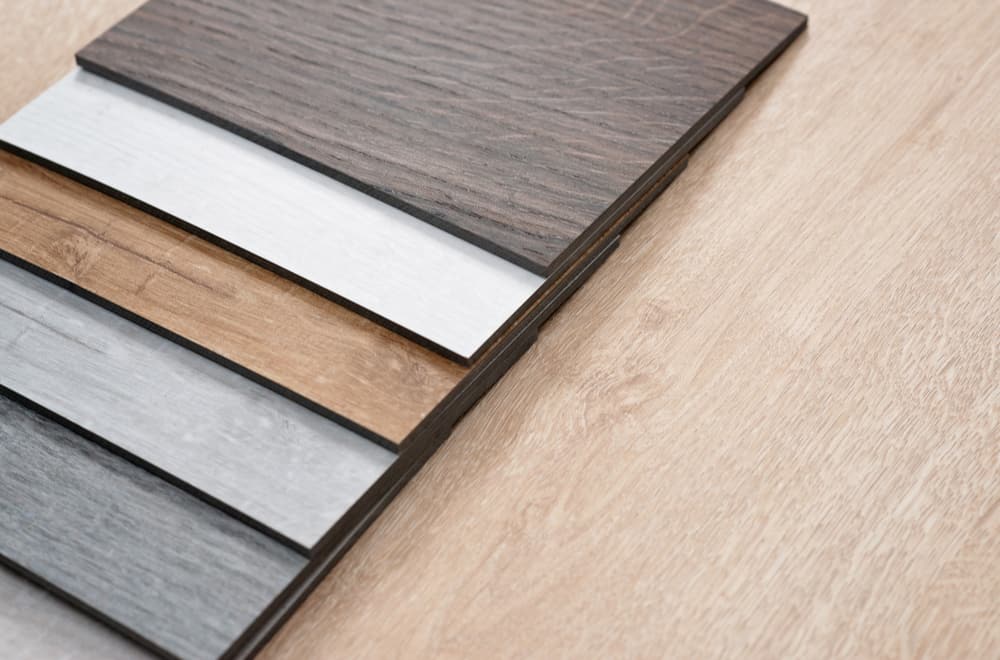
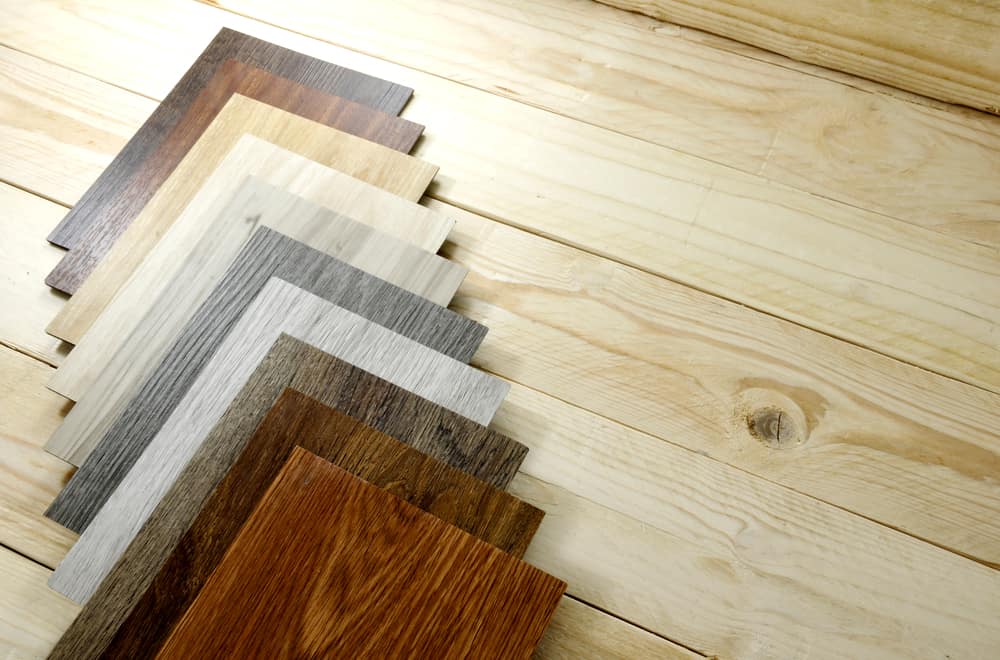
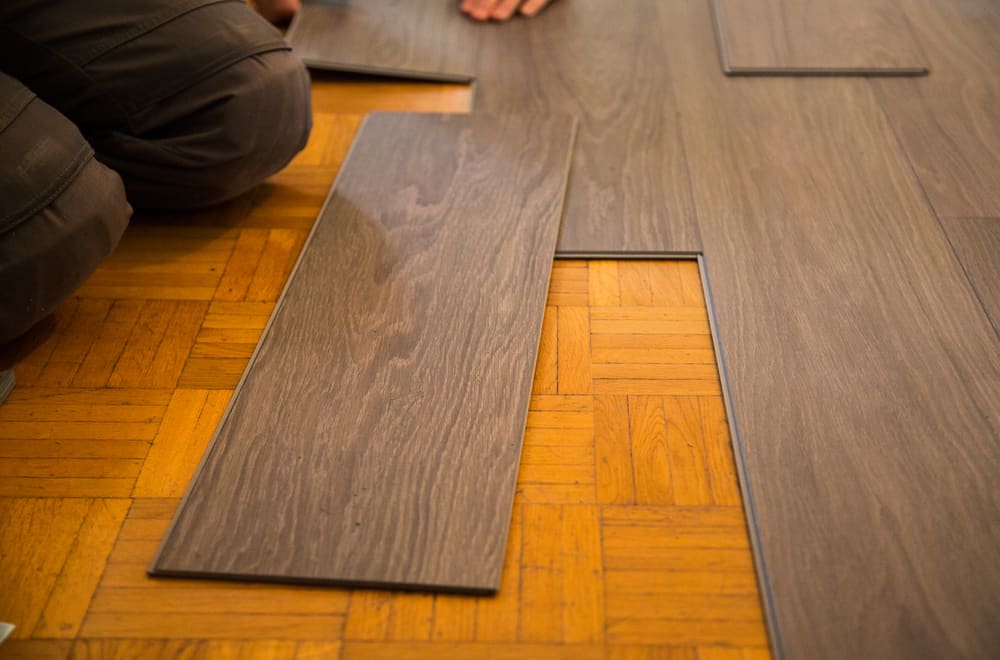
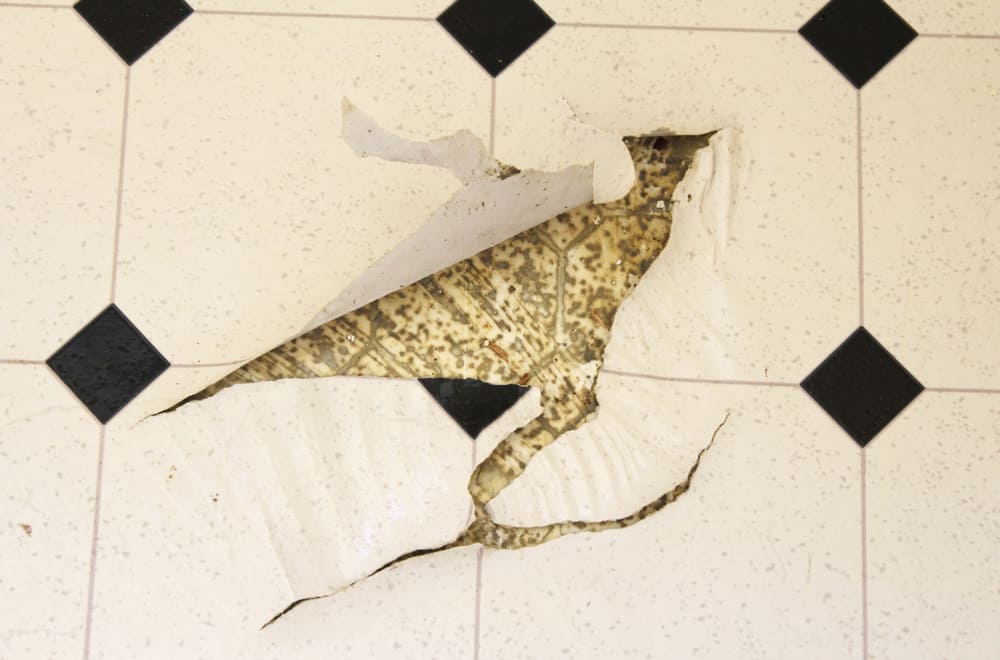
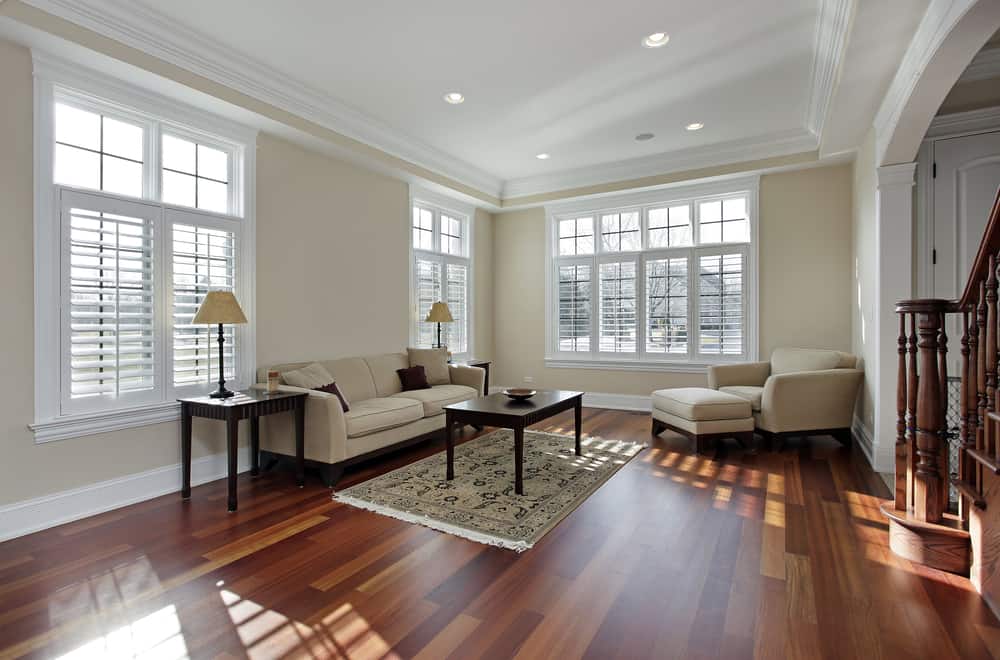
I have parque flooring.Should I re finish it or put down vinal flooring